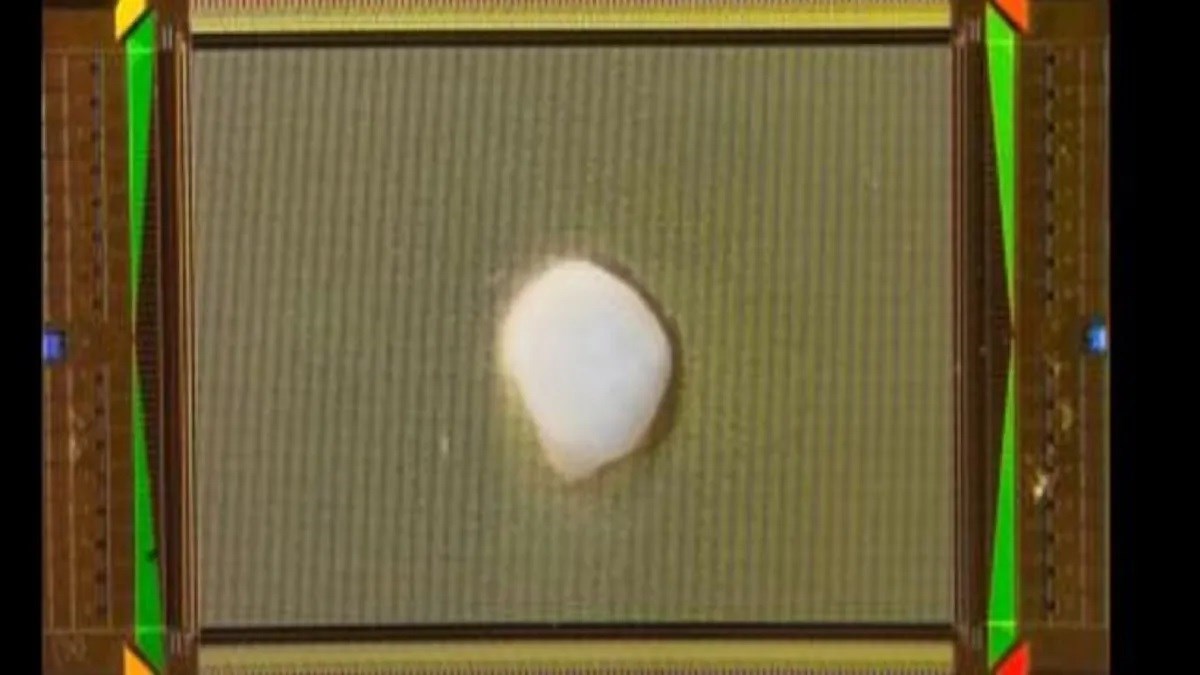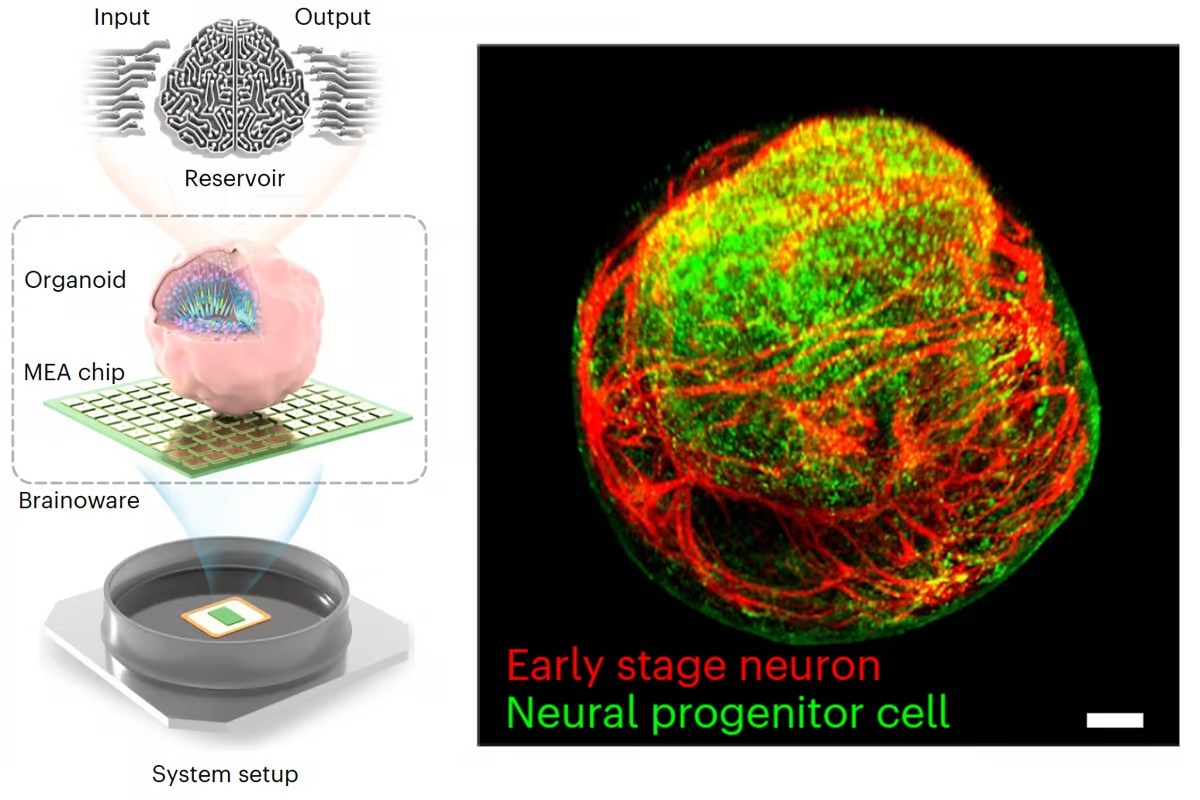 Researchers have created a “biocomputer” consisting of laboratory-grown human brain tissue and electronic circuits that they say can perform tasks such as voice recognition. To do this, researchers transformed bundles of human cells called “organoids” into neurons and paired them with electronic circuits, creating a system they called “Brainoware.”
Researchers have created a “biocomputer” consisting of laboratory-grown human brain tissue and electronic circuits that they say can perform tasks such as voice recognition. To do this, researchers transformed bundles of human cells called “organoids” into neurons and paired them with electronic circuits, creating a system they called “Brainoware.”Biocomputer developed
Feng Guo, co-author of the study and Indiana University bioengineer, told Nature magazine that their goal is to build a bridge between artificial intelligence and organoids and take advantage of the efficiency and speed of the human brain in processing information. “We wanted to investigate whether we could take advantage of the biological neural network within the brain organoid for information processing,” Guo added in his statement.
Ultimately, the hope is that brain-inspired biological computers can perform tasks on behalf of traditional AI while also providing scientists with an exciting new way to study the human brain. In a series of experiments, the team connected organoid mini-brains to a plate made of thousands of electrodes. They then sent data to the organoid in the form of a series of electrical pulses and “decoded” what it said using a machine-learning algorithm.
 Using their system, the team performed voice recognition after feeding 240 recordings of eight people speaking to Brainoware. After the system and artificial intelligence were trained on the data, the researchers found that Brainowave was able to detect the original speaker with 78 percent accuracy.
Using their system, the team performed voice recognition after feeding 240 recordings of eight people speaking to Brainoware. After the system and artificial intelligence were trained on the data, the researchers found that Brainowave was able to detect the original speaker with 78 percent accuracy.Researchers hope the technology can be used to study conditions such as Alzheimer’s disease and the effects of various treatments. However, growing cells is an expensive and laborious process, so it will likely be difficult to scale mini-brains large enough to complete more complex tasks. But still, this is an intriguing new development in bioinformatics that could pave the way for brain-inspired computers in the future.